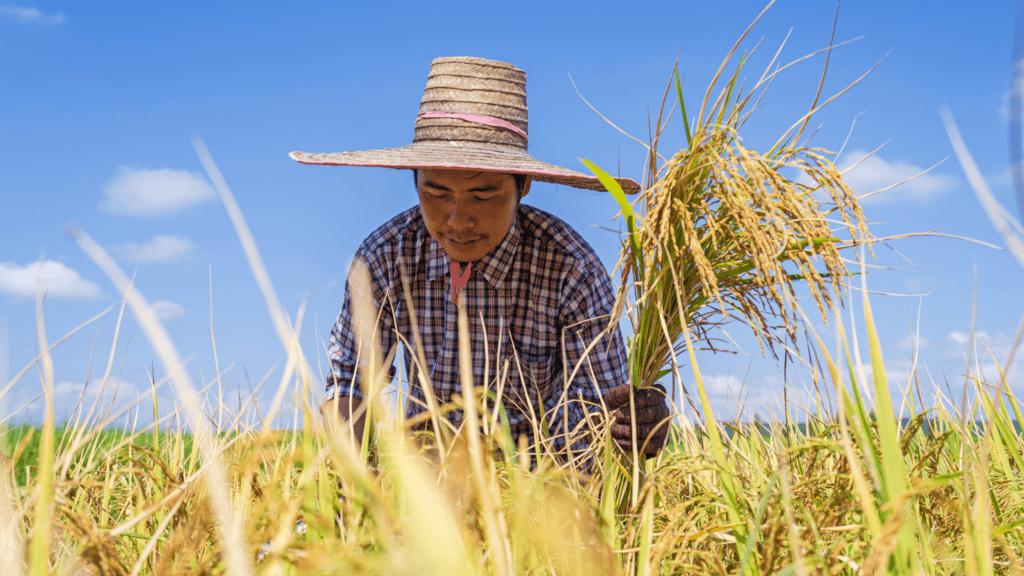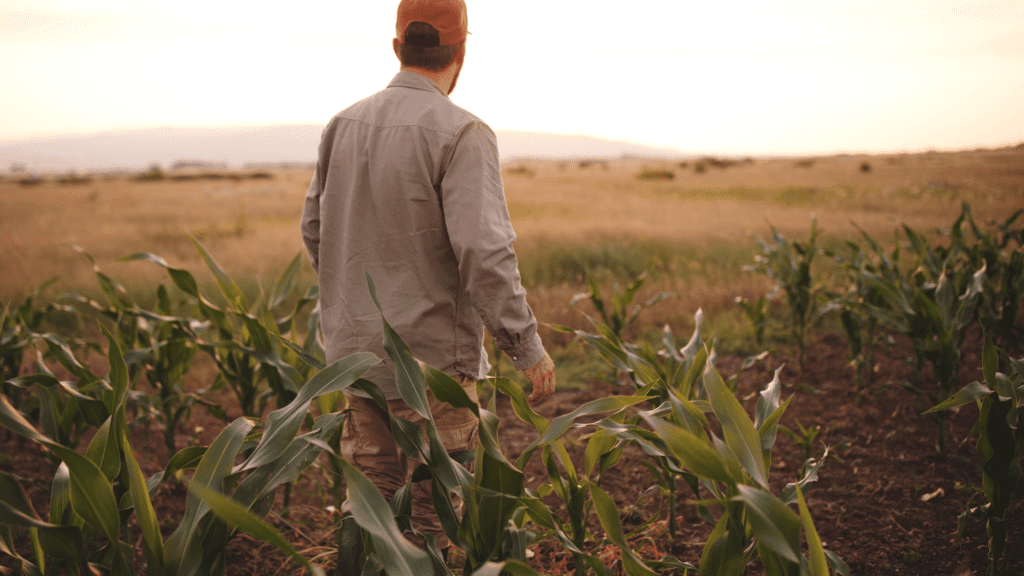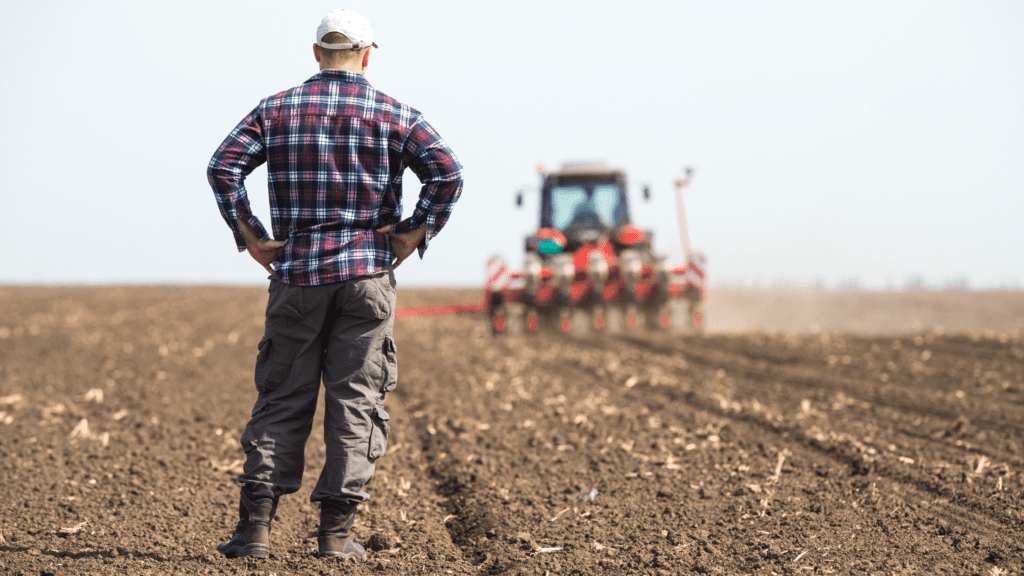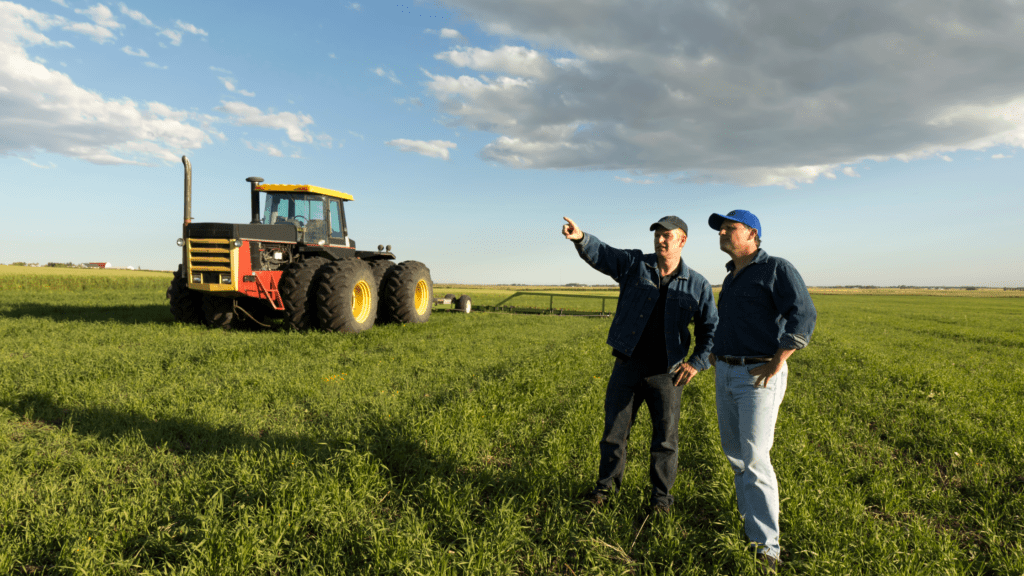You’ve always dreamed of living off the land and being connected to nature as a farmer. It’s an admirable goal – farmers are the bedrock of our society and essential to feeding the world. However, becoming a farmer is challenging work that requires passion, skill, and knowledge. If you’re willing to try to learn the craft and start small, you can turn your farming dream into a reality. But let’s see what it takes.
Table of Contents
ToggleHow to Become a Farmer: Gain Farming Experience
To become a farmer, gaining hands-on experience is key. Internships, apprenticeships, and volunteering are excellent ways to learn the ropes before starting your farm.

- Internships provide supervised, structured learning experiences. Interns assist experienced farmers in exchange for training. Farm internships typically last 3-6 months and may be paid or unpaid. Interns learn skills like operating equipment, crop maintenance, and marketing produce.
- Apprenticeships involve a long-term commitment to work under a skilled farmer, usually 1-2 years. Apprentices receive housing and a stipend in exchange for their labor. Apprenticeships allow for in-depth learning of all aspects of running a farm business.
- Volunteering at a local farm or community garden is a flexible way to gain experience. Volunteers help with tasks like planting, weeding, harvesting, and distribution in their spare time. While unpaid, volunteering builds knowledge and connections within the farming community.
No matter the method, the key is finding the right opportunity for your needs and interests.
How to Be a Farmer: Develop a Farm Business Plan
To become a farmer, developing a comprehensive farm business plan is essential. A good plan will help you outline your goals, determine resource needs, and prepare for challenges.

- Conduct market research to identify your target customers and competitors. Analyze potential products and services based on consumer demand and trends. This will help ensure opportunities for your farm to be viable and profitable.
- Develop financial projections, including income statements, cash flow statements, and balance sheets for the next 3-5 years. Factor in equipment, land, buildings, supplies, and operating expenses. Determine how much money you need to start and keep the farm running. Seek funding from investors, loans, crowdfunding, or your savings.
- Create an operational plan that covers how you will plant, grow, harvest, and distribute your crops or products. List the equipment, technology, and staffing required each season. Develop standard procedures to ensure high quality and efficiency. Plan for pests, diseases, weather events, and natural disasters.
- Describe your business structure, management team, and organizational details. Will you be a sole proprietor, partnership, or corporation? Who will oversee key functions like finance, marketing, and operations? How will you attract and retain top talent?
- Define your mission and vision. What are your farm’s purpose and values? Set both short-term and long-term strategic goals to work toward your vision. Review and revise your plan annually based on performance and new opportunities.
How to Become Farmer: Choose a Farm Enterprise
Choosing an enterprise based on your interests and local demand is vital to becoming a successful farmer. Consider the following factors to determine what will work best for your farm:
Your Knowledge and Skills
- Think about your background, interests, and strengths. If you have experience with certain crops, livestock, or equipment, focus on those areas. You will save time learning the necessary skills and have a higher chance of success. For example, consider starting a small dairy operation if you grew up on a dairy farm. If you have a degree in horticulture, focus on growing organic fruits and vegetables. Play to your strengths.
Local Agricultural Demand
- Research what is in demand in your local market. Look for undersupplied crops or livestock that thrive in your climate. For example, small fruit production may be ideal if there are few berry farms in your area. Check with local grocers, food hubs, and farmers’ markets to determine what they have trouble sourcing locally. Also, research what grows well in your region through your agricultural extension service. Meeting local demand will ensure you have customers for your products.
Start Small and Build Over Time

- Do not take on more than you can handle, especially when you are first starting. It is easier to start small and expand as your skills and customer base grow. Consider starting with a few acres of a single crop or a small livestock herd. As you gain experience, you can scale up to more acreage and a wider range of products. Starting small minimizes risk and the likelihood of becoming overwhelmed.
Learn Through Online Courses and Resources on Becoming A Farmer
To become a farmer, continuous learning and skill development are essential. While formal education, like a degree in agriculture or experience, working on a farm, can be helpful, many of the resources you need to learn about farming are available online.
Farming Books
- Some highly-rated books for aspiring farmers include ” target=”_blank” rel=”noopener” data-lasso-id=”535″>The Market Gardener by Jean-Martin Fortier. ” target=”_blank” rel=”noopener” data-lasso-id=”536″>You Can Farm by Joel Salatin, and ” target=”_blank” rel=”noopener” data-lasso-id=”537″>The New Organic Grower by Eliot Coleman. These books provide comprehensive overviews of sustainable farming practices, business strategies, and advice for getting started. Reading books from experienced farmers is one of the best ways to develop knowledge before getting out in the field.
Farming Online Courses
- Many free or low-cost online courses provide overviews of sustainable agriculture and business practices. For example, Cornell University offers an Organic Farming Course that covers soil health, crop rotation, and pest and weed management. The University of Massachusetts Amherst has a Beginning Farmer Webinar Series with courses on developing a business plan, food safety regulations, and farm financing options.
Farming Video Tutorials

- Platforms like YouTube have a plethora of video tutorials from experienced farmers on everything from how to fix a tractor to how to slaughter chickens humanely. Some recommended channels are The Farming Life, The Modern Yeoman, and The Vegetable Gardener. Their videos provide a visual demonstration of farming skills and techniques you can practice.
Farming Blogs and Podcasts
- Many farmer-run blogs and podcasts share advice, stories from the field, and opinions on important agricultural issues. A few to follow include The Beginning Farmer, Permaculture Voices, and The Urban Farm Podcast. Reading and listening to the experiences of real farmers is a great way to gain valuable insight into the lifestyle and pick up useful tips for your farm.
Apply for Loans, Grants, and Crowdfunding to Start Your Farm
To start a farm, significant capital is typically required. Loans, grants, and crowdfunding can help provide the necessary funding to get your farm up and running.
Apply for Agricultural Loans
- The U.S. Department of Agriculture (USDA) offers several loan programs for farmers. The Farm Service Agency (FSA) provides direct and guaranteed farm ownership and operating loans with reasonable interest rates. Microloans are also available for small, beginning farmer needs like equipment or working capital. In addition, private agricultural lenders and farm credit institutions offer competitive loan products for farmers. These loans often have lower interest rates and longer repayment than traditional business loans.
Seek Out Grants
- Government agencies, non-profits, and private organizations offer grants for beginning farmers to help with start-up costs for things like infrastructure, equipment, working capital, and more. For example, the USDA’s new farmer grants provide up to $50,000 to develop business plans and gain access to land and equipment. Many state governments also provide grants for new and small farmers. Do some research to find grants that match your needs.
Launch a Crowdfunding Campaign
- Crowdfunding platforms like Kickstarter, Indiegogo, and GoFundMe are popular ways for farmers to raise money from individuals in exchange for farm products, experiences, or other perks. You create a campaign to share your farm vision, set a fundraising goal and deadline, and offer incentives at various funding levels. Crowdfunding is a chance to raise awareness and pre-sell your farm products. Many small farms have successfully raised $25,000 to $50,000 through crowdfunding.
Ready to Become a Farmer?

Becoming a farmer will not be easy, but it can be an incredibly rewarding life for those with the determination and patience to see it through. You can connect with the land, feed your community, and gain a sense of purpose and independence. By following your passion for growing food and caring for the environment, you are stepping into a vital time-honored role in our society. With hard work and perseverance, you can overcome the challenges of starting a farm and building a sustainable livelihood that nourishes the body and the soul. The path to becoming a farmer may be long, but the destination is worth the journey for those called to work the land.





